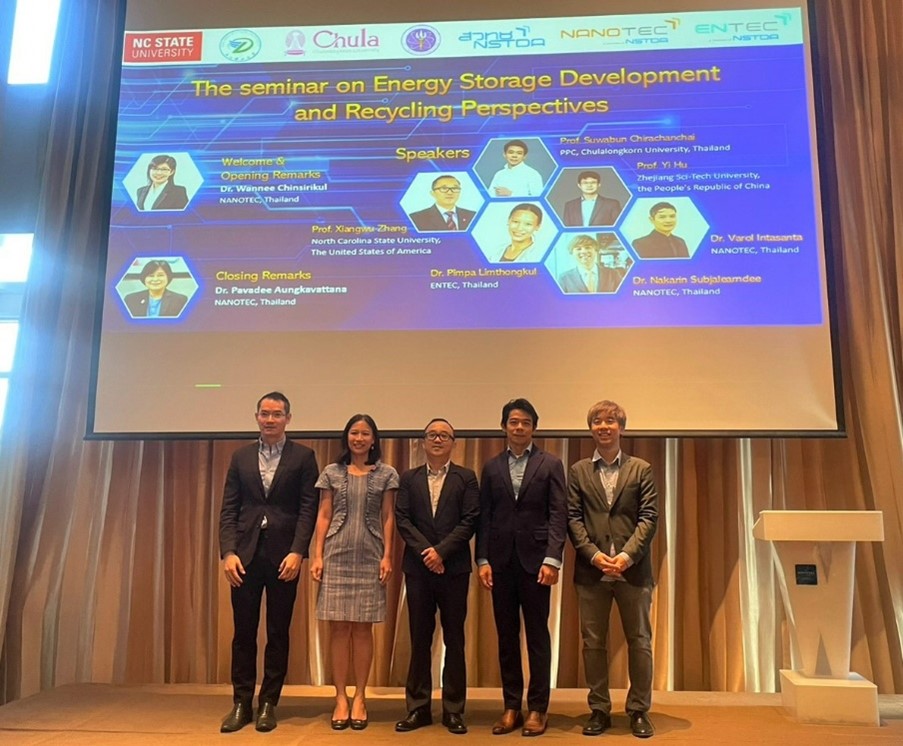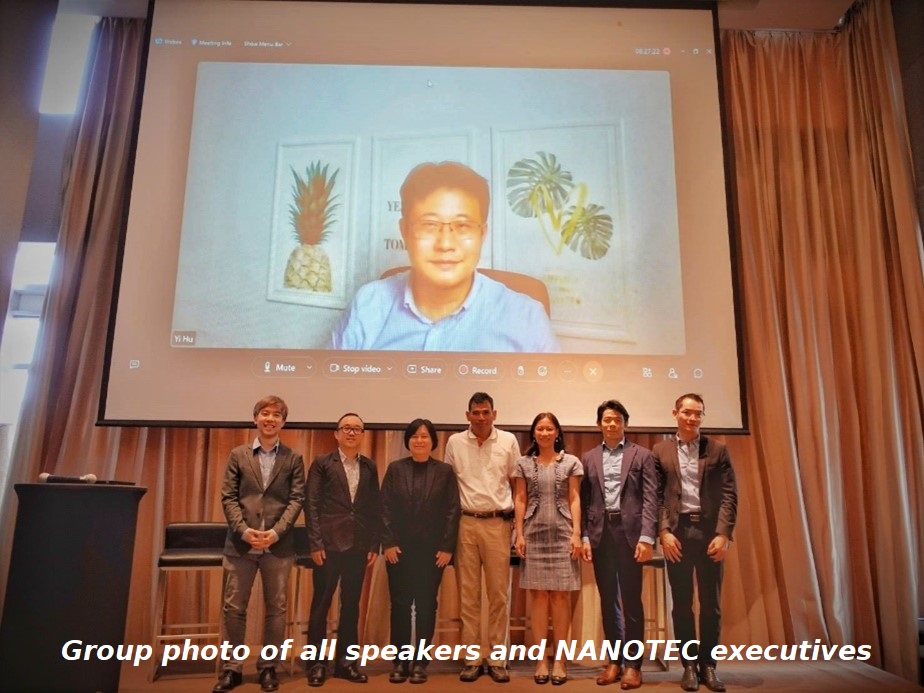
On 18 August 2023, NANOTEC organized a seminar on “Energy Storage Development and Recycling Perspectives” at Novotel Bangkok Ploenchit Sukhumvit, Thailand. This event is part of the project entitled “Utilization and upcycling of graphite waste from spent Li-ion batteries to regenerative electrodes for Zn-ion batteries” which was granted by the Office of the Permanent Secretary (OPS), Ministry of Higher Education, Science, Research and Innovation (MHESI), Thailand. This project is a collaboration among Thailand by NANOTEC and ENTEC, China by Zhejiang Sci-Tec University and Guangzhou Great Power Energy & Technology CO., LTD., and USA by Wilson College of Textiles, North Carolina State University.

The objective of this seminar is to build a network both locally and internationally through the integration of knowledge and discussion on energy storage development and recycling perspectives among peers. Moreover, we expected to build the country’s competitiveness in a sustainable way.
Leading professors and scientists from renowned institutions (the name list below) were invited as speakers, details as following:
• Prof. Xiangwu Zhang, Wilson College of Textiles, North Carolina State University, USA
• Prof. Yi Hu, Zhejiang Sci-Tech University, People's Republic of China
• Prof. Suwabun Chirachanchai, Petroleum and Petrochemical College (PPC), Chulalongkorn University, Thailand
• Dr. Pimpa Limthongkul, ENTEC, NSTDA, Thailand
• Dr. Varol Intasanta, NANOTEC, NSTDA, Thailand, and
• Dr. Nakarin Subjalearndee (PI of this project), NANOTEC, NSTDA, Thailand
The seminar served as a platform for researchers and participants to exchange their research findings, insights, and experiences, fostering a collaborative environment for the advancement of energy storage development and recycling. The event witnessed the participation of over 50 attendees, further enhancing the dissemination of knowledge and promoting sustainable practices in the field.
The outcomes of this project are twofold: First, the establishment of a cooperative network with foreign countries and private companies. This could promote the utilization of the waste materials generated by the recycling of lithium batteries, thereby promoting a circular economy and enhancing research capabilities in waste material utilization in global aspect. Second, the project aims to advance knowledge in energy technology development by exploring the potential of waste materials after lithium-ion battery recycling.
